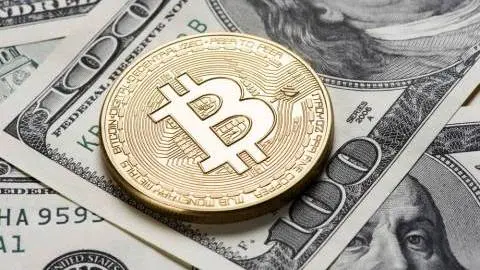New Money: How finance will look in the future
Exploring the changing role of money and financial services, we look at not only the way people pay but also how they finance their homes and how businesses manage their cash
Why talk about money?
The money we deal with on a daily basis may very well undergo radical change in the not-too-distant future. We aim to discuss these changes in our “New Money” series. Why? Because rich or poor, money is one of the greatest sources of stress for people around the world. It touches every aspect of our lives from what we eat to where we live to how we think.
Studies show that money often determines our level of happiness and even our life expectancy.
The ongoing digital revolution, led by big tech companies, is affecting payments, money and the wider financial system, and it could have major repercussions for the way we all go about our financial business. We will return to this in later articles.
But let's zoom in first on money itself. It is surprising that there is, in fact, no consensus among economists as to the exact nature of money. Just what is it precisely? A voucher issued by an online retailer? Bitcoin? A tin of mackerel!? Most people, economists included, consider a bank deposit to be money. Yet in a strict legal sense, it’s not.
To be sure, the function of money is not in dispute: most economists agree that it acts as a medium of exchange, a unit of account and a store of value.
But its inherent characteristics are far more unclear. There are deeper questions to answer. And these are becoming increasingly important as new strides in technology enable new forms of money to move from the realm of fiction to reality.
New money will have consequences for the way we all go about our daily financial business
The core money topics of today
Today’s monetary debates are taking place in three areas. We briefly introduce them here, and cover them in depth in separate companion articles.
- Cryptocurrencies and crypto-assets: Driven by the innovative combination of existing digital technologies, bitcoin has been hailed by some as an alternative to the traditional payments system. As the system is decentralised, there is no need for intermediaries like banks, and the presence of a central bank is considered blasphemy. As such, monetary policy and credit need a fundamental rethink. Still, reality has proven more difficult than theory. Crypto markets are discovering that decentralised software does not necessarily result in decentralised markets. That doesn’t mean the cryptocurrency ideal is dead. Indeed, cryptocurrencies have spawned a separate strand of blockchain research at the intermediaries it set out to make obsolete. Those intermediaries are now bringing to market the first blockchain-driven financial services, and more may be underway. If nothing else, blockchain and derivative technologies may provide an excellent opportunity to digitise and “tokenise” services that until recently still ran on infrastructure from the last century.
- "Full reserve banking": There are various plans, going back to the Chicago Plan of the 1930s. In these plans, deposit-taking banks have to park all the funds received at the central bank, and are not allowed to lend. Institutions that lend, in turn, are no longer allowed to issue deposits (they are stripped of their money creation licence). Unlike cryptocurrencies, the system remains centralised, with only the central bank allowed to create money. This prompts a rethink of credit provision, and of the government’s role in the economy. Important details differ, leading to different proposals such as Sovereign Money (championed for example by Positive Money in the UK and Vollgeld in Switzerland), Full Reserve Banking and Narrow Banking.
- Central bank digital currency (CBDC): The CBDC debate is somewhat different. CBDC is not necessarily an alternative to the current system (although it is sometimes presented as such). Instead, it can be added to it. Recent technological advances (such as cryptocurrencies) have also revived this debate, despite the fact that CBDC was perfectly possible with existing digital technology. CBDC has, in fact, been around for decades, in a form restricted to selected counterparties (mostly licenced banks).
The cryptocurrency ideal is not dead yet
But New Money is not just for wonks to ponder
These are the core topics for money wonks. But money concerns all of us. Let's first dive into the fundamentals: why does money have value to us? And what forms can money take? There are many angles to this debate which show why it is so interesting and perplexing. We hope to clear up some of the confusion. Do drop the authors a line to share your thoughts and ideas.
This publication has been prepared by ING solely for information purposes irrespective of a particular user's means, financial situation or investment objectives. The information does not constitute investment recommendation, and nor is it investment, legal or tax advice or an offer or solicitation to purchase or sell any financial instrument. Read more
Tags
New MoneyDownload
Download article
27 February 2019
New Money: A new chapter for central banks and capital markets This bundle contains 6 Articles
